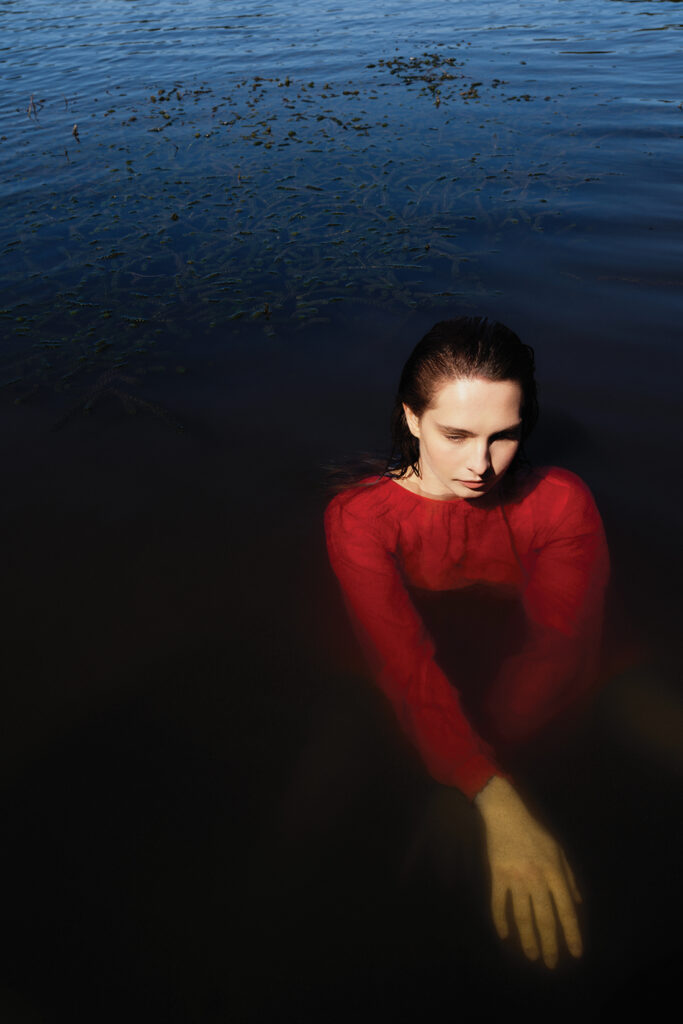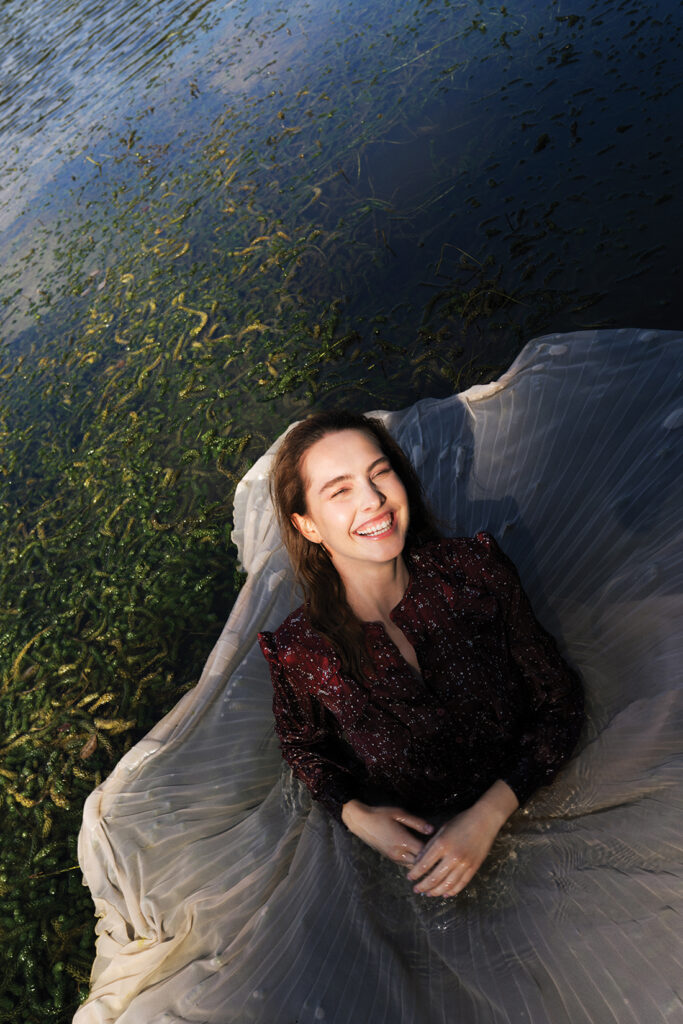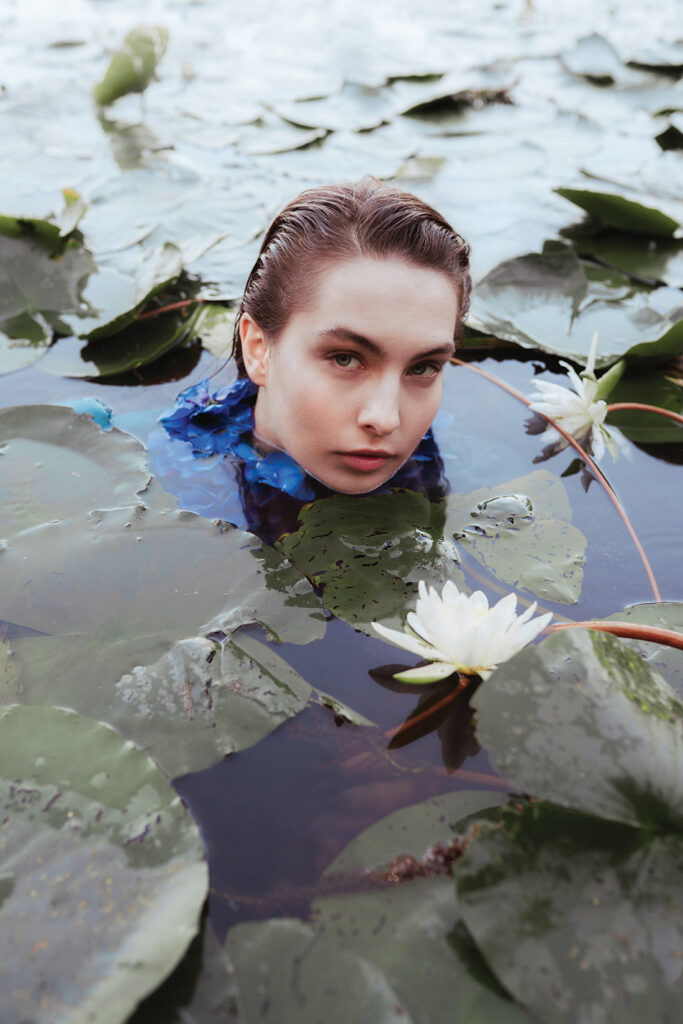Be it nature, art, dance, gardening or animals, these new forms of alternative therapy are leading the way as the perfect complements to traditional talking therapy, and for good reason
Words by Naomi Chadderton

Be it the fall-out from the Covid-19 pandemic, the negative effects of our social-media obsessions or simply a lack of available support, it’s clear that more and more people are suffering from mental health issues. Close to 1 billion people are living with a mental health disorder, and in the Middle East particularly, there is still a taboo around therapy and admitting you are struggling. This stigma is one of the first barriers that prevent people from getting the help they need.
However, if you feel like talk therapy – be it psychotherapy or counselling – isn’t the best fit for your mental health, you’re not alone. The success of talk therapy varies from individual to individual and as such, a new wave of alternative ‘active’ therapies are entering the arena and have been gaining popularity in recent years – with many that involve no talking at all. Falling under the broad category of Complementary and Alternative Medicine (CAM), these forms of therapy tap into what talk therapy usually doesn’t: physicality. Think art, music, dance, gardening, or animal-assisted sessions. While they are not yet as evidence-supported as mental health treatments, studies have proven they can effectively be used to treat everything from anxiety to PTSD and chronic pain.
One of the most popular forms of CAM to emerge in recent years is ecotherapy, which, according to Dr Laila Mahmoud, specialist in psychiatry at Medcare Hospitals & Medical Centres, simply means, “A diverse set of activities that use nature and nature- based activities as a form of behavioural therapy. It is founded on how nature impacts mental health and psychological and emotional wellbeing.” The main concept of ecotherapy is to reconnect with nature through outdoor activities, gardens and animals, bringing the outdoors indoors to help alleviate anxious and depressive symptoms. “Nature spreads its beauty on the inside, encouraging positive self- perception and helping attract positive energy and happiness,” she adds. In fact, Kate Middleton is even a fan, and popularised a form of ecotherapy called forest bathing, based on the Japanese practice known as shinrin-yoku.

While simply taking yourself for a walk or indulging in an afternoon of gardening has proved to work wonders for mental health, Tracie Holroyd, a member of the British Association for Counselling and Psychotherapy, is flying the flag for equine- assisted therapy, following the Eagala approach in which a mental health professional, qualified equine specialist, and horses work together to help the client overcome the issues they have been struggling with.
“Horses are prey animals and as such, are highly sensitive to their environment,” she says. “Some people respond well to traditional talk therapy, but may gain insight by doing this alongside talking. Add to that the unique sensitivity of horses providing non-judgmental feedback, and clients have reported that healing can happen much quicker by involving horses in the psychotherapy process than with traditional treatment modalities.” Don’t worry if you’re not a seasoned horse rider either; clients don’t even have to like them as it doesn’t actually involve riding a horse. “Some models will work with owners and their horses, but Eagala programmes are usually based at stables, and clients will visit there,” she says.
If you can’t quite put into words how you’re feeling, don’t fret if animals aren’t your thing, as multiple studies have shown that expressive therapy, which simply involves using creative art such as drama, music or poetry, as a kind of therapy not only eases the symptoms of mental health issues but also anxiety and depression. Or, instead of talking it out, maybe you need to dance or draw it out, with studies about art therapy, for example, supporting the idea that it can have an immediate stress-reducing effect.
 Taking innovative therapies to a whole new level, Dubai-based Virtually Clinical aims to tackle mental health concerns in a unique way by introducing therapy which incorporates immersive technology and techniques to allow for faster change in a futuristic, innovative environment. The platform, which is the rst of its kind in the world, can be used to treat stress, eating disorders, OCD, anxiety and con dence issues by e ectively virtually dropping the patient into immersive situations that are causing them stress and anxiety in a bid to help them tackle these head on. For example, social anxiety can be overcome by exposing the client to situations that require interaction with a group of people involving a variety of scenarios, such as being evaluated and judged by others. At all times, the client’s stress levels are monitored by using a GSR machine (galvanic skin response) to ensure they are safe and comfortable.
Taking innovative therapies to a whole new level, Dubai-based Virtually Clinical aims to tackle mental health concerns in a unique way by introducing therapy which incorporates immersive technology and techniques to allow for faster change in a futuristic, innovative environment. The platform, which is the rst of its kind in the world, can be used to treat stress, eating disorders, OCD, anxiety and con dence issues by e ectively virtually dropping the patient into immersive situations that are causing them stress and anxiety in a bid to help them tackle these head on. For example, social anxiety can be overcome by exposing the client to situations that require interaction with a group of people involving a variety of scenarios, such as being evaluated and judged by others. At all times, the client’s stress levels are monitored by using a GSR machine (galvanic skin response) to ensure they are safe and comfortable.
“This form of therapy is much less intimidating than talking face-to-face with a therapist,” explains founder and managing director Maria Tansey. “It is also great for younger generations who may find it more difficult to connect with their therapist on a personal level. Using technology helps to make the sessions relevant to them. It can yield faster results as it activates all the senses and combines sounds, smells and visual props to help release blockages faster and overcome limiting beliefs to help convince the mind of the changes that have been made.”
Of course, we shouldn’t assume that all forms of alternative therapies are enough by themselves, especially if you might be dealing with speci c mental health challenges. No matter what kind of therapy you’re considering, it may help to start with a talk therapist if only to start working out what you’re going through, and other approaches they’d recommend. “As a psychiatrist, I believe ecotherapy is mandatory, and should go together with traditional therapy,” explains Dr Mahmoud. “Neither can substitute the other, but done hand-in- hand they can help o er a more complete treatment. It is a kind of readjustment of a lifestyle back to what feels normal, and helps us rebuild what urbanisation has taken from us, making us return to nature and change our unhealthy life habits to our native ways.” Afterall, with traditional therapy you’re typically only in it for an hour a week, so it’s vital to pay attention to all those other hours, too.
Photography: Christiane Baumgart | Model: Julia Kunkel at Model Werk | Hair & Make-up artist: Kim Angermann | Stylists: Shima Khazei & Nicole Reitbauer
Read Next: Suffering from bloating? Here’s how your mind could be to blame




